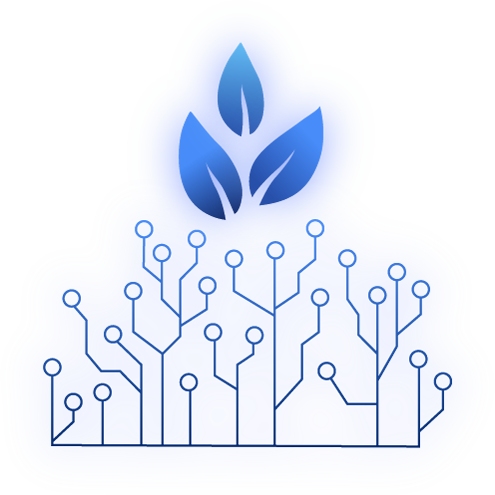Industry 4.0 Solution | IIoT System
- Home
- Industry 4.0 Solution | IIoT System
Industrial IoT Solutions
We guarantee a smooth transition towards Industry 4.0 Solution IIoT system in India, Industrial Internet of Things based Automation IOT incorporates functions that enables the users to connect all objects with internet. Its basic functioning is to capture and communicate data with M2M communication, sensor data and automation technologies. It is transpired to be a strong economic driver over the next decade. It is estimated that IOT connected devices will reach up to 200 billion by 2020. The use of IoT technologies in the industry is ever increasing as it minimizes manual effort and increases efficiency.
Our IOT solutions provide seamless machine to machine connectivity in all location at a minimal cost. Digital Controls will help to nurture your business growth and cater to your needs. Our team of experts will provide assistance in designing, testing, result monitoring and problem solving. We will provide you assistance in picking up the inefficiencies sooner and saving your time and money. Our companies IOT platform is built on absolute internal security and features in-depth research to ease the business functioning. By infusing the intelligence into devices- we deliver business ease services.
As has been noted, remote monitoring on PLCs is common to the industrial automation in the plant. However, the factory could be located anywhere in the world and leaves many difficulties of management of the large scale of PLCs. Hence, to make that problem a thing of the past, Livwize, with the use of Industrial Controller, offers an intelligent solution to help reduce the production cost, decrease in part cycle time, and improve quality and reliability.
The Industrial IoT represents a variety of IoT applications, smart product design principles, and data-driven automation practices in the industrial sector of economy. It widely utilizes modern sensor technology to enhance different types of equipment with remote monitoring and maintenance capabilities. On a larger scale, the Industrial IoT is a key element of Industry 4.0, or smart factory, trend of automation, which brings together modern cloud computing, IIoT, and AI to create intelligent, self-optimizing industrial equipment and facilities.
Read More about our range of IoT Gateway & Data Logger
Intelligent PLC Management Solution

Predictive Maintenance

Factory Wide Connectivity

Remote Device Configuration and Tuning

Cloud based Data Storage and Analytics

Failure Reduction and Safety Control

Production Line Remote Monitoring
The Industrial IoT can protect machines and systems from downtime by detecting the early signs of malfunction/failure.
Installing IoT sensors into industrial systems allows operators to know what’s going on with the equipment in near real-time, and with high accuracy. Connected through an IoT controller with Platform, these sensors provide you with an in-detail reporting over the equipment status, performance, security, and so on.
When we can predict problems we can prevent systems going down. With the IoT, every single machine can be transparent to your eye.
- Performance and device health data monitoring
- Predictive maintenance
- Remote troubleshooting
- Smart alerts and notifications
- Perimeter security and access controls
The field operations are the ones to experience most dramatic quality impact from experiencing IoT. Based on the analysis of this machinery data the field ops make an informed decision whether a piece of equipment requires any service or not.
However, with IoT you no longer even have to wait for failure to occur. In many cases proper analysis of data feeds coming from the equipment can lead to indications of possible future malfunction, and proper preemptive maintenance actions can fix the incident even before it happens.
- Remote monitoring and troubleshooting
- Predictive maintenance
- Continuous product improvement through identification of weak spots
- Smart alerts and notifications
- OTA Updates
According to the Industrial Internet Survey, optimizing asset utilization ranked the top reason to adopt IIoT technology,
By enabling cloud capabilities for your equipment with Livwize, you can monitor and control your workflows in a remote manner as well as set up automation rules to optimize your assets utilization.
Additional cost savings can come from better energy practices, managing the energy usage for peak, off-peak etc.
- Programmable automation for different kinds of industrial equipment
- Factory wide performance analytics
- Device Management
- Smart Metering
- OTA Updates
Smart factory is the end goal of Industrial IoT transformation. Essential technology bundle for smart factory is AI and machine learning. The most popular modern AI applications include voice and image recognition, robotic process automation, quality control, and autonomous robots. As they gain more traction, AI algorithms will let industrial systems continuously improve their operations and find new ways for cost-efficient autonomy. AI is also expected to lift off the burden programming and configuring of millions of devices in the field from our shoulders, in this way accelerating further growth of Industrial IoT and smart factory innovations.
- Applications for intelligent system
- Artificial Intelligence (AI) and Machine Learning
- Device Management
- Smart Factory system integration
- Robotic process automation




